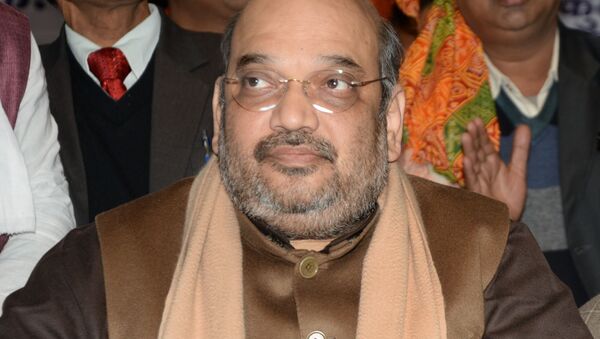India’s Home Minister Amit Shah, said on Tuesday that the federal government has no plans to implement the National Register of Citizens (NRC) across the country.
“Till now, the Government has not taken any decision to prepare National Register of Indian Citizens (NRIC) at the National level,” Nityanand Rai, Shah’s junior minister in the Home Ministry told Lok Sabha, the lower house of Parliament in a written response.
This represents a U-turn, as Shah had said on several occasions that the NRC would be implemented across the country.
“I promise not even one infiltrator will be allowed to remain in India,” he told a gathering in eastern city of Kolkata in October, 2019.
Again in November 2019, speaking in Rajya Sabha, parliament’s upper house, Shah had said: “The process of NRC will be carried out across the country. No one, irrespective of religion should be worried, it is just a process to get everyone under the NRC.”
The controversial NRC requires a headcount to identify genuine citizens of the country and illegal immigrants. Muslims consider it as discriminatory to their community.
A similar exercise carried out in India’s northeast Assam in 2019 found over 1.9 million non-citizens, of which 1.4 million were Hindus. The state government of Assam, ruled by the federal ruling Bharatiya Janata Party, then rejected the list, alleging irregularities.
The controversial Citizenship Amendment Act, 2019 (CAA) seeks to grant citizenship rights to “persecuted minorities” from three neighbouring Islamic countries. However, the law does not include Muslims, which has become a bone of contention between the federal government, and the ruling BJP Bharatiya Janata Party on one side and several opposition parties, civil rights groups and university students on the other.
Protests against the CAA have been continuing unabated since its enactment in December, 2019, resulting in the deaths of 25 people in clashes in northern Uttar Pradesh (18), northeast Assam (5) and southern Karnataka (2).




